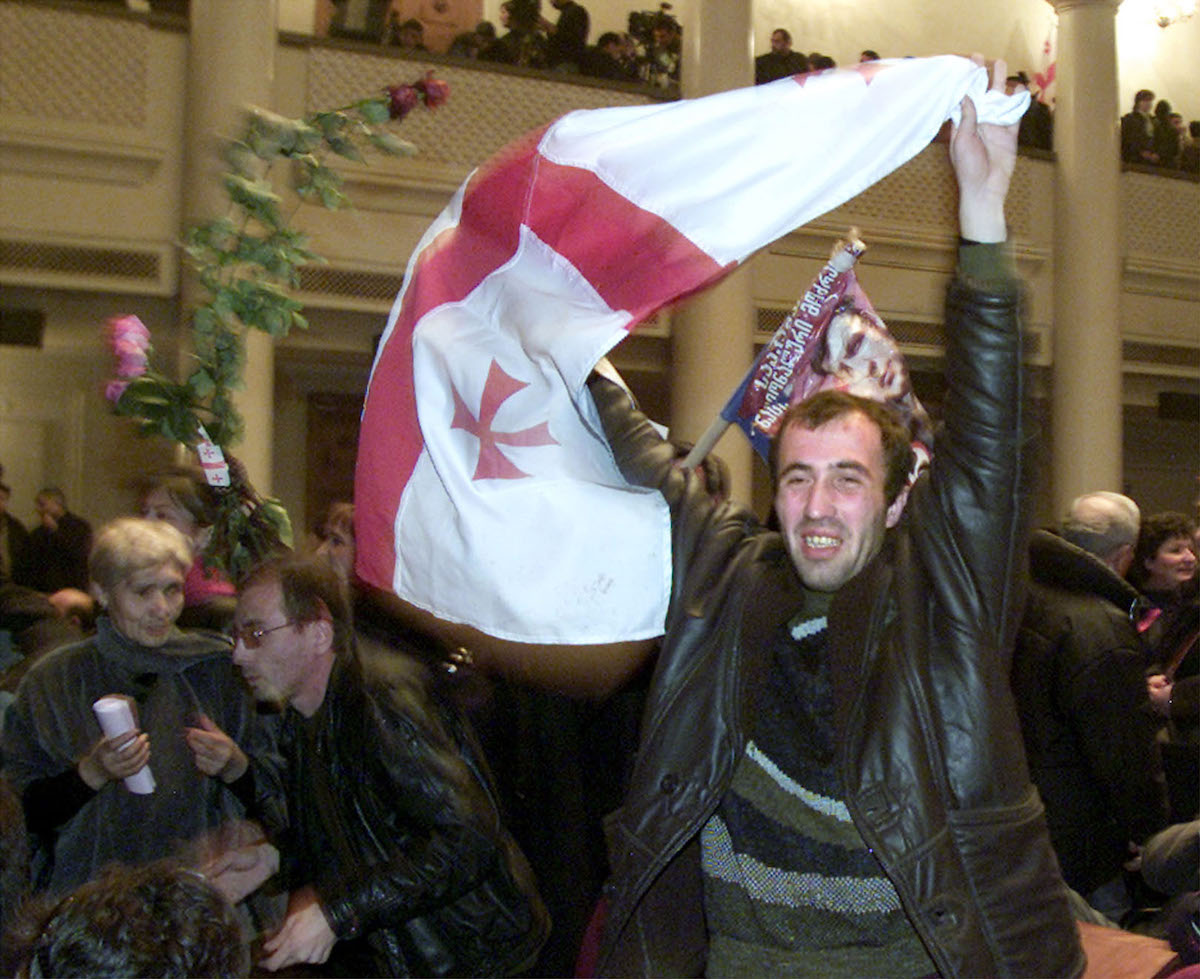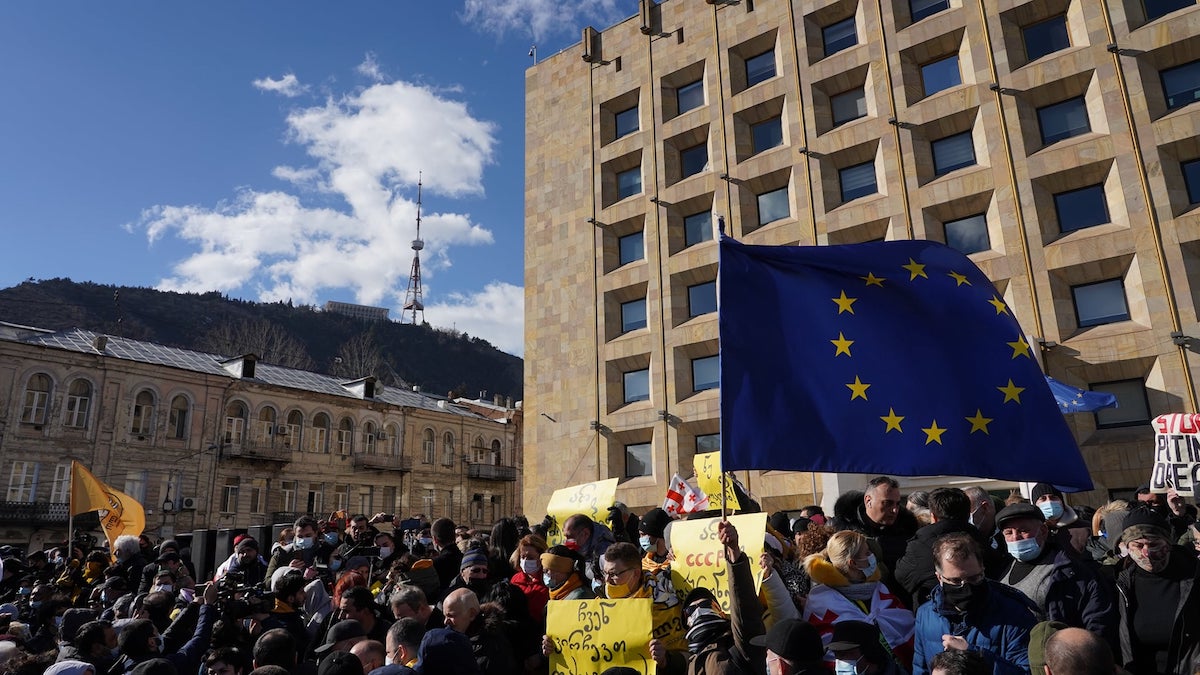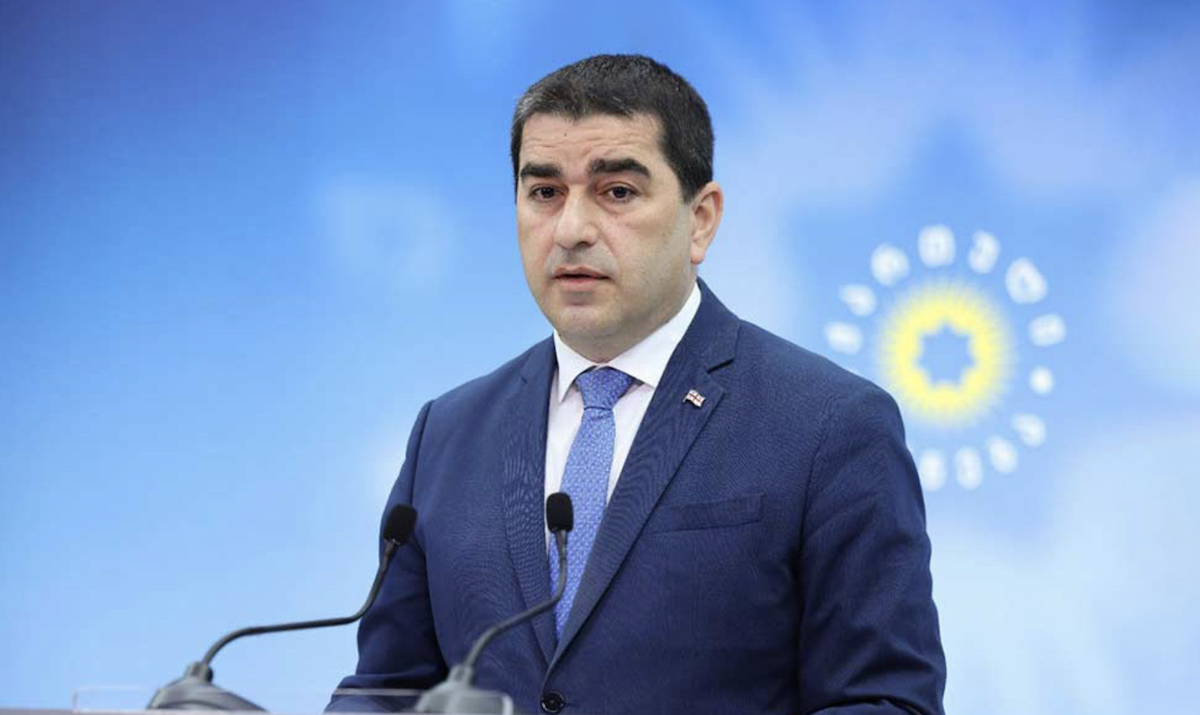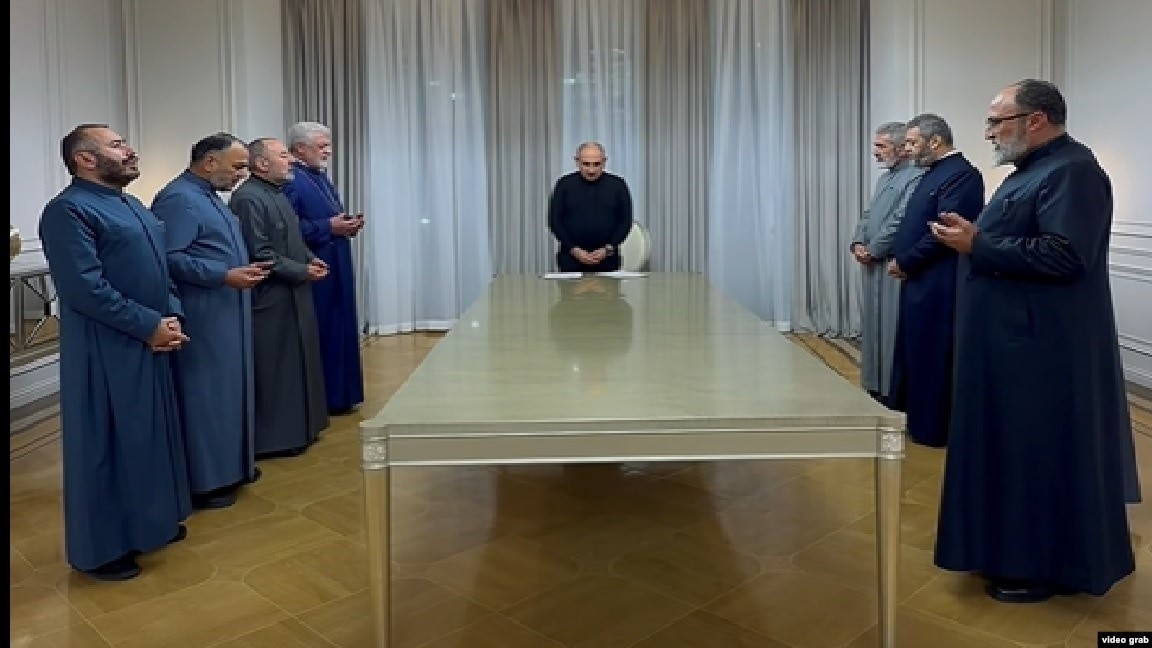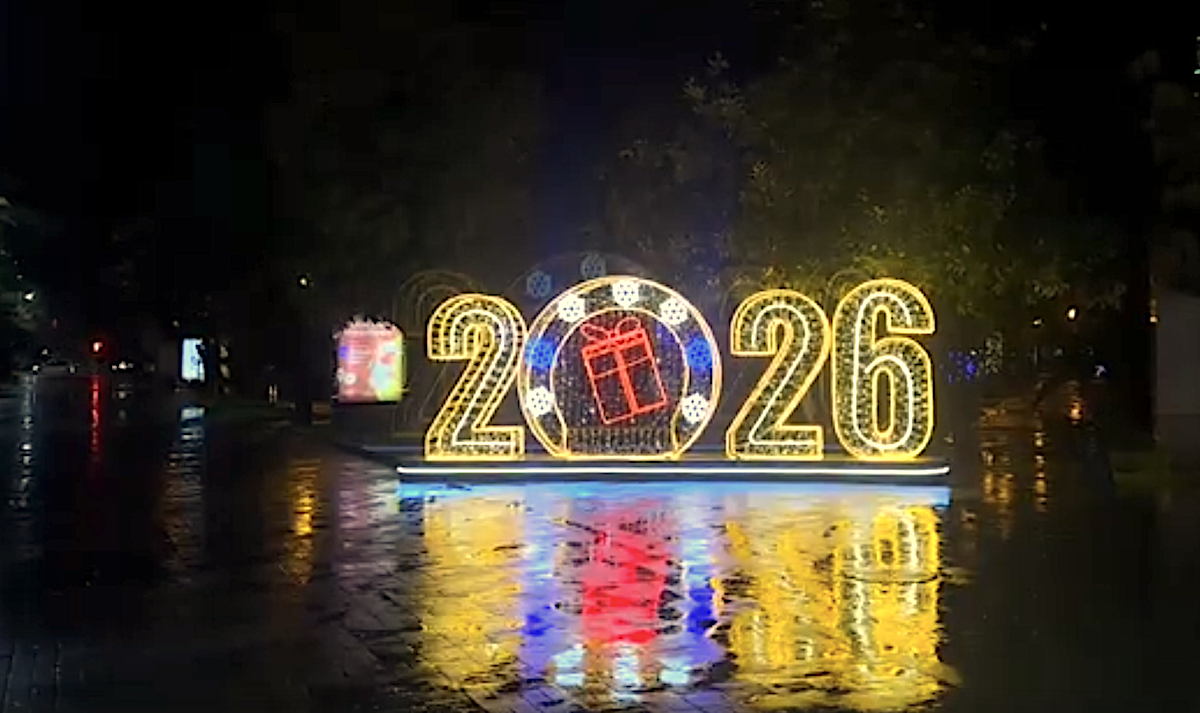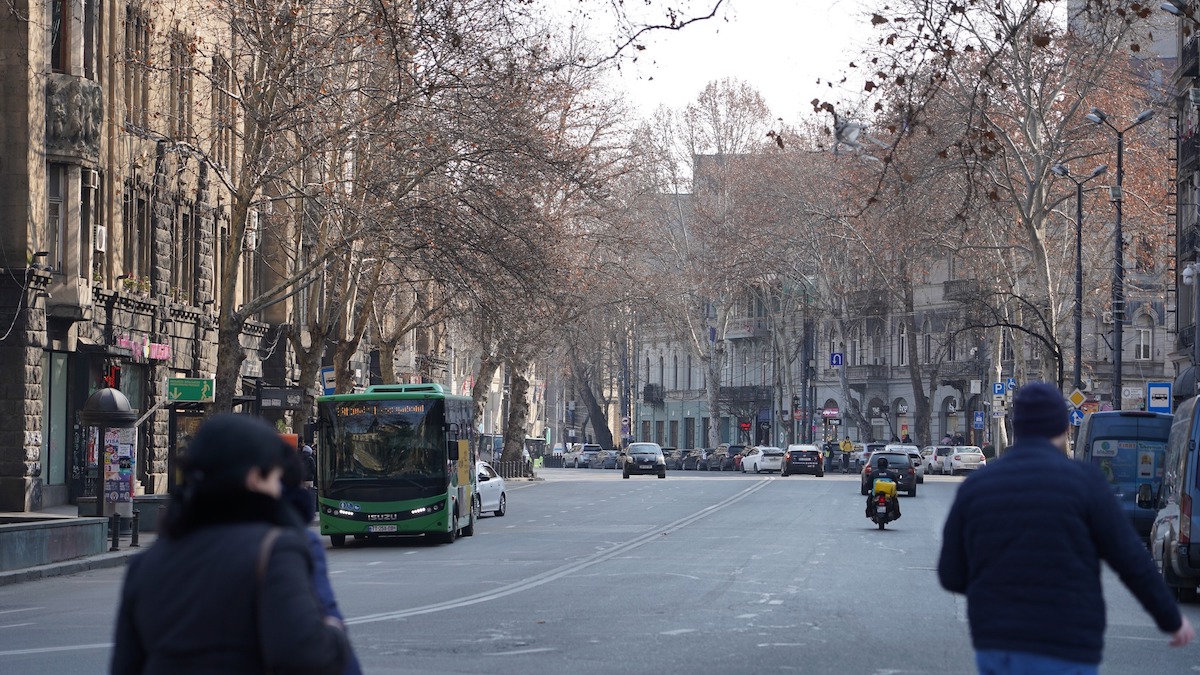Report published by Georgian parliament commission on Saakashvili government’s actions
Georgian parliament: Saakashvili guilty for 2008 war
The report was presented by the head of the commission, Tea Tsulukiani, deputy speaker of parliament from the ruling Georgian Dream party. In her presentation she said that in 2008 the Georgian army had been “dragged into a war by politicians with no military expertise, who, relying on external help and ignoring the views of Georgian commanders, launched an attack on Tskhinvali.”
She also described Georgia’s Rose Revolution as a coup d’état.
Tsulukiani went on to criticise a checkpoint built in the village of Chorchana near the occupation line in 2019, when Giorgi Gakharia was interior minister. She said the commission had established that as a result of a decision “taken unilaterally” by Gakharia, “Georgia’s territorial integrity was once again violated.”
Speaking about former economy minister Kakha Bendukidze, Tsulukiani claimed he had “appropriated” the property of the Agrarian University.
The temporary investigative commission of Georgian Dream was set up in parliament on 5 February 2025 to examine the actions of the previous government, with Tsulukiani as its chair. The commission summoned politicians to hearings and broadcast their questioning live. Those who failed to appear were investigated under article 349 of the criminal code, which penalises non-compliance with a parliamentary investigative commission’s demands.
The offence is punishable by a fine or up to one year in prison, with convicted individuals also banned from holding political office for three years.
Within a month, Georgian Dream authorities jailed six opposition leaders, all accused of failing to attend commission hearings. The opposition regards both the commission and the parliament as illegitimate.
What Tea Tsulukiani said
On the 2008 war
“The United National Movement and Mikheil Saakashvili gave Russia a legal pretext, which Russia used to its own detriment and to Georgia’s, to violate Georgia’s territorial integrity in 2008.
Residents of Kodori gorge in Abkhazia, summoned to the commission, who had either served there or defended Georgia’s territorial integrity with arms in hand, described the activities planned by the United National Movement in the gorge since 2006 as a deliberate attempt to ‘cleanse’ it of its population and hand it over to Russia.
According to information provided about the August 2008 war, defence minister Davit Kezerashvili and interior minister Vano Merabishvili – neither of whom had military training or experience – rejected a plan put forward by Georgian officers on 6 August 2008, acting in coordination with Mikheil Saakashvili.
According to information provided to the investigative commission by General Gogava, General Kurashvili, General Balakhadze, Shalva Janashvili (then Deputy Interior Minister under Vano Merabishvili), military doctor Lasha Koiava, and others, the following conclusion was drawn:
In August 2008, the Georgian army was dragged into war by politicians far removed from military affairs. Relying on external support and ignoring the views of Georgian commanders, they launched an offensive on the city of Tskhinvali and designated it as the main direction of combat operations.
The commission also found that, by decision of these politicians, military tasks in the main direction – that is, in Tskhinvali – were assigned not to the armed forces but to the Interior Ministry. This caused disorientation within the defense forces and left the civilian population in confusion and feeling unprotected.”
On the Rose Revolution
“I would like the education ministry to review this report. This is not an official recommendation, just my opinion.
It may be necessary to reconsider how the period from 2004 to 2012 is presented to young people in Georgian history textbooks. I am almost certain the younger generation does not know what is written in our report.
And it, supported by facts and reliable information, confirms that the “Rose Revolution” was in fact a coup d’état.”
On the installation of a checkpoint in the village of Chorchana (in the Georgian-Ossetian conflict zone)
“As the work of the investigative commission has shown, after the 2008 war Georgia’s territorial integrity was again violated as a result of a unilateral decision in 2019 by former interior minister Giorgi Gakharia to build a checkpoint in the village of Chorchana.
The facts established by the commission about the construction of the checkpoint raise serious questions about whether there was an attempt to provoke a manufactured escalation, as in 2008, and what role was played by the former interior minister himself and by the head of the national security council’s staff, Kakhaber Kemoklidze.”
In August 2019, a Georgian police post was opened in Chorchana, in the Shida Kartli region, near the occupation line. At the time, the interior minister was Giorgi Gakharia. Even before the checkpoint was opened, Russian occupation forces had begun illegal “borderisation” – the process of reinforcing the dividing line in the Georgian-Ossetian conflict zone.
Testifying to the commission, Gakharia said the checkpoint had saved 1,800 hectares that the Tskhinvali authorities had tried to seize using a “fake 1992 map.”
Georgian Dream claims the government and security services knew nothing about the opening of the Chorchana checkpoint. They say its construction led to the loss of territory and pushed the country to the brink of war.
On former economy minister Kakha Bendukidze
“We examined the case of the Agrarian University and found that one of the leaders of the United National Movement, Mr Bendukidze, ended up the owner of major property that once belonged to the Agrarian University,” said Tea Tsulukiani.
At the end of 2007, Bendukidze created the Knowledge Fund and founded the Free University. Later, the Agrarian University also came under the fund’s management. Between 2007 and 2012, the Knowledge Fund invested more than $50m in education as part of its charitable activities. Bendukidze, the fund’s founder, died on 13 November 2014.
According to Tsulukiani, the commission also looked into a case concerning the Georgian Technical University’s property rights:
“This is state-owned property which, thanks to Saakashvili and his entourage, was transferred into the hands of his mother, Giuli Alasania.”
News in Georgia












